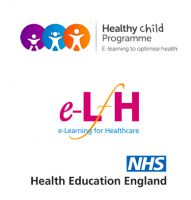Adherence and Concordance in Young People



This session examines factors that influence the way young people take medicines in adolescence. It will also explore some of the challenges encountered by health professionals who care for young people who may have health beliefs conflicting with those of their parents or professionals.
Learning Objectives
By the end of this session you will be able to:
- List the factors that influence young people, their parents or carers in their approach to following prescribed management and treatment plans
- Discuss issues related to the prescribing and usage of medicines in young people
- Consider strategies for engaging young people and their parents to promote concordance and adherence
Adherence to medical regimens for young people with long-term conditions is often poor, with some estimates suggesting it may be below 50% in many cases.
Before commencing this session you should complete the following AH sessions:
- 02_004 Psychosocial Development (401-0007)
- 02_005 Social Development in Adolescents (401-0008)
- 02_006 Assessing Developmental Stage (401-0009)
Prior to her recent retirement Marcelle de Sousa was an Adolescent Nurse Specialist in the Adolescent Unit at University College Hospitals in London. She has been involved in transitioning young people to adult services since 1986 when she was a paediatric renal nurse. She was the chair of the Adolescent Health Forum of the RCN and the regional member of the London Board of the RCN. Marcelle has been a member of the Children’s Health Alliance Adolescent subgroup and was one of the Department of Health Transition Champions.


Terry Segal is a consultant in general and adolescent paediatrics at University College Hospital, London. She is the adolescent lead as well as unit training director for paediatrics in UCLH. She is sub-speciality trained in paediatric and adolescent endocrinology, as well as some specific psychological training. Her interests include chronic fatigue and chronic pain syndromes, psychosomatic illness, medical management of anorexia and underweight and obesity. She has published research in the areas of obesity and pubertal delay amongst others.
- Acute Medicine | Cardiorespiratory arrest 02 knowl...
- Posted By eIntegrity Healthcare e-Learning
- Posted Date: 2024-12-27
- Location:Online
- This session looks at the diagnosis and management of an accidental hypothermic patient presenting either with or without cardio respiratory arrest, and common complications. The initial rescue and recovery is not covered in this session.
- Introduction to Female Genital Mutilation/Cutting/...
- Posted By True Relationships & Reproductive Health
- Posted Date: 2024-12-27
- Location:Online
- This course gives an introduction to Female Genital Mutilation/ Cutting/ Circumcision (FGM/C) in Aus...
- Acute Medicine | Chest pain 01 knowledge A
- Posted By eIntegrity Healthcare e-Learning
- Posted Date: 2024-12-27
- Location:Online
- This session provides an overview of ischaemic electrocardiograms (ECGs) in acute medicine. It is not intended to teach how to interpret ECGs, but to understand the underlying coronary anatomy relative to their interpretation.
- Acute Medicine | Cardiorespiratory arrest 02 knowl...
- Posted By eIntegrity Healthcare e-Learning
- Posted Date: 2024-12-27
- Location:Online
- This session explains the pathophysiology and aetiology of hypothermia in adult patients and the way they present.
- Acute Medicine | Breathlessness 18 knowledge B
- Posted By eIntegrity Healthcare e-Learning
- Posted Date: 2024-12-27
- Location:Online
- This session describes how to evaluate, investigate and plan the management of a patient presenting with breathlessness due to anaemia.








